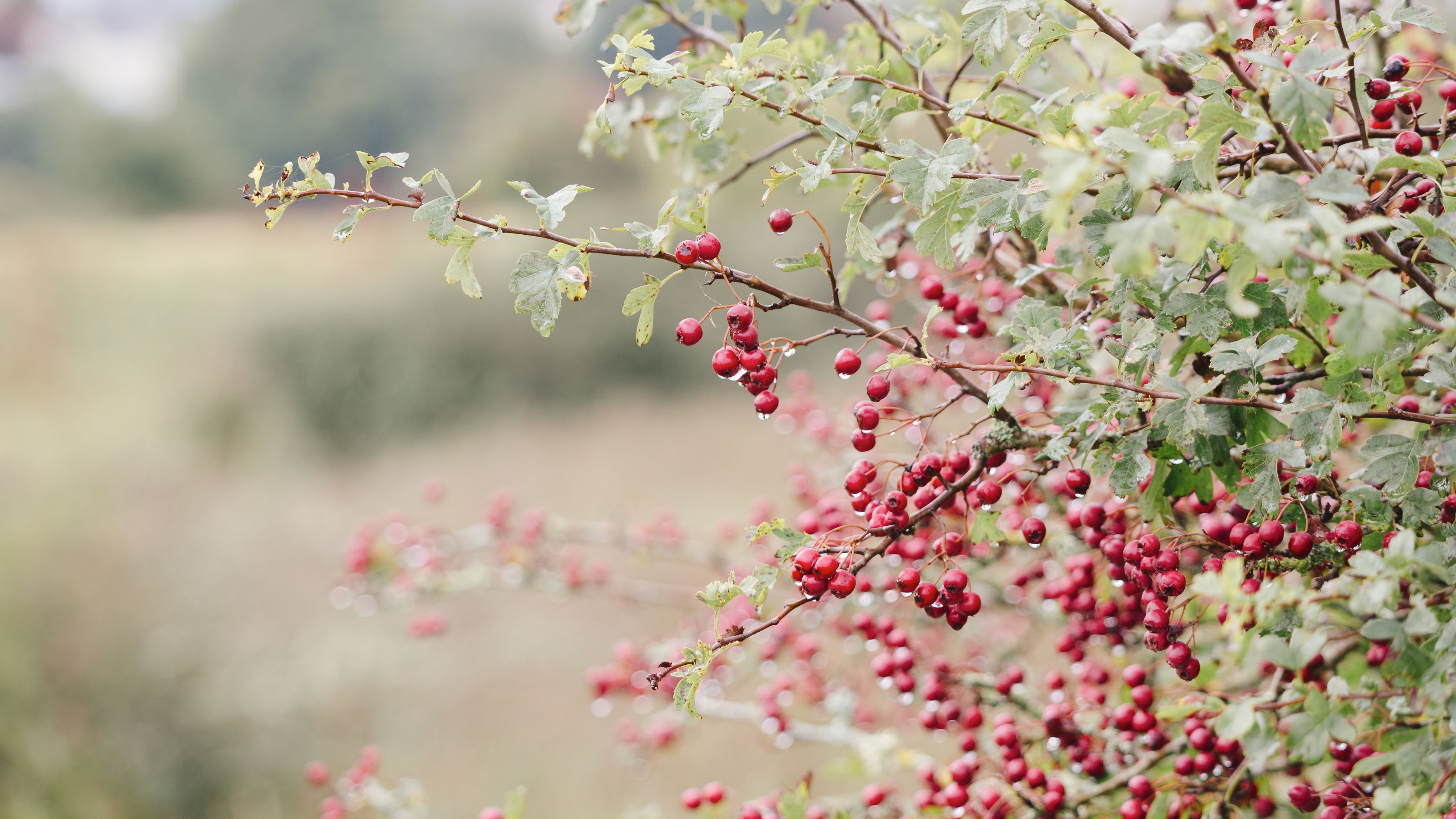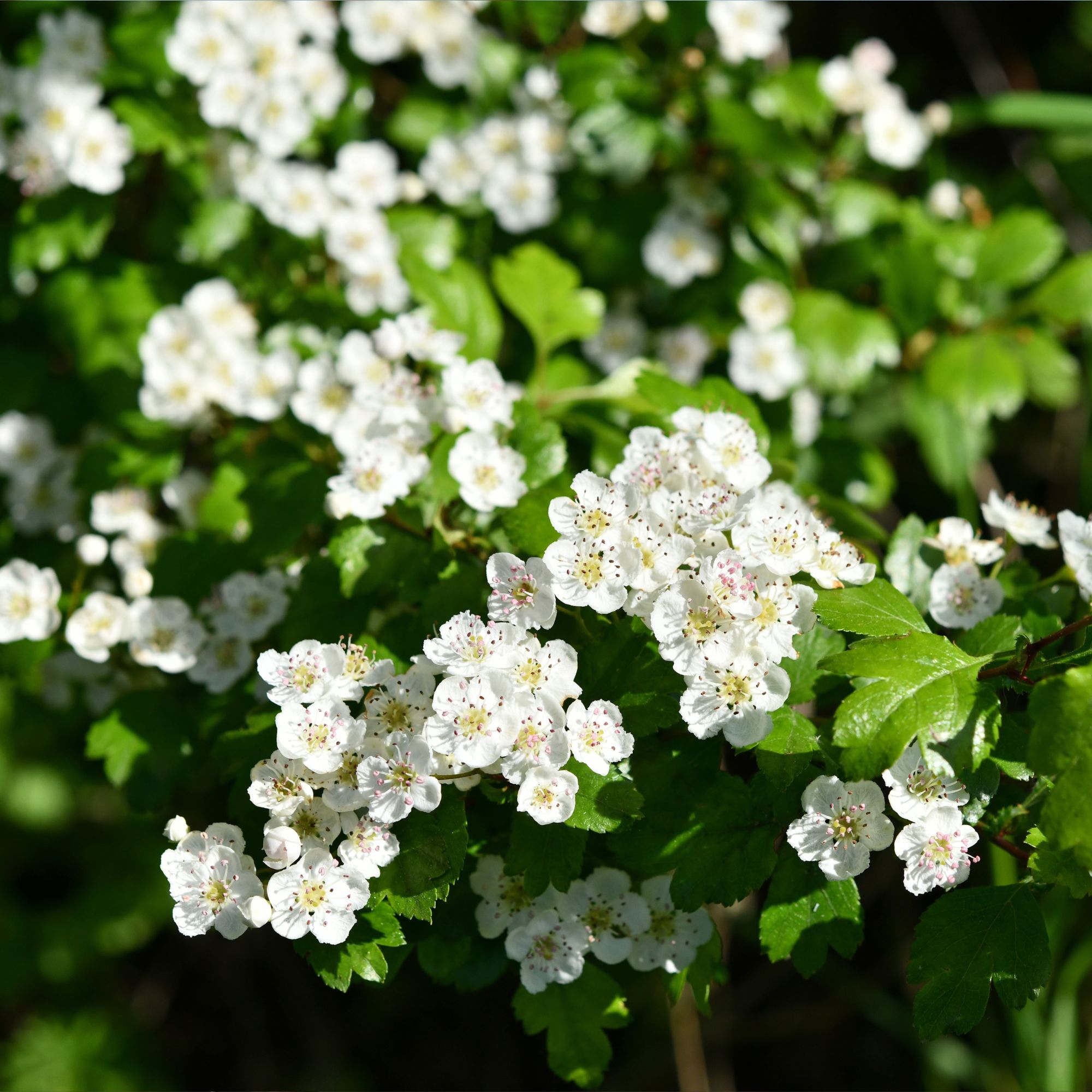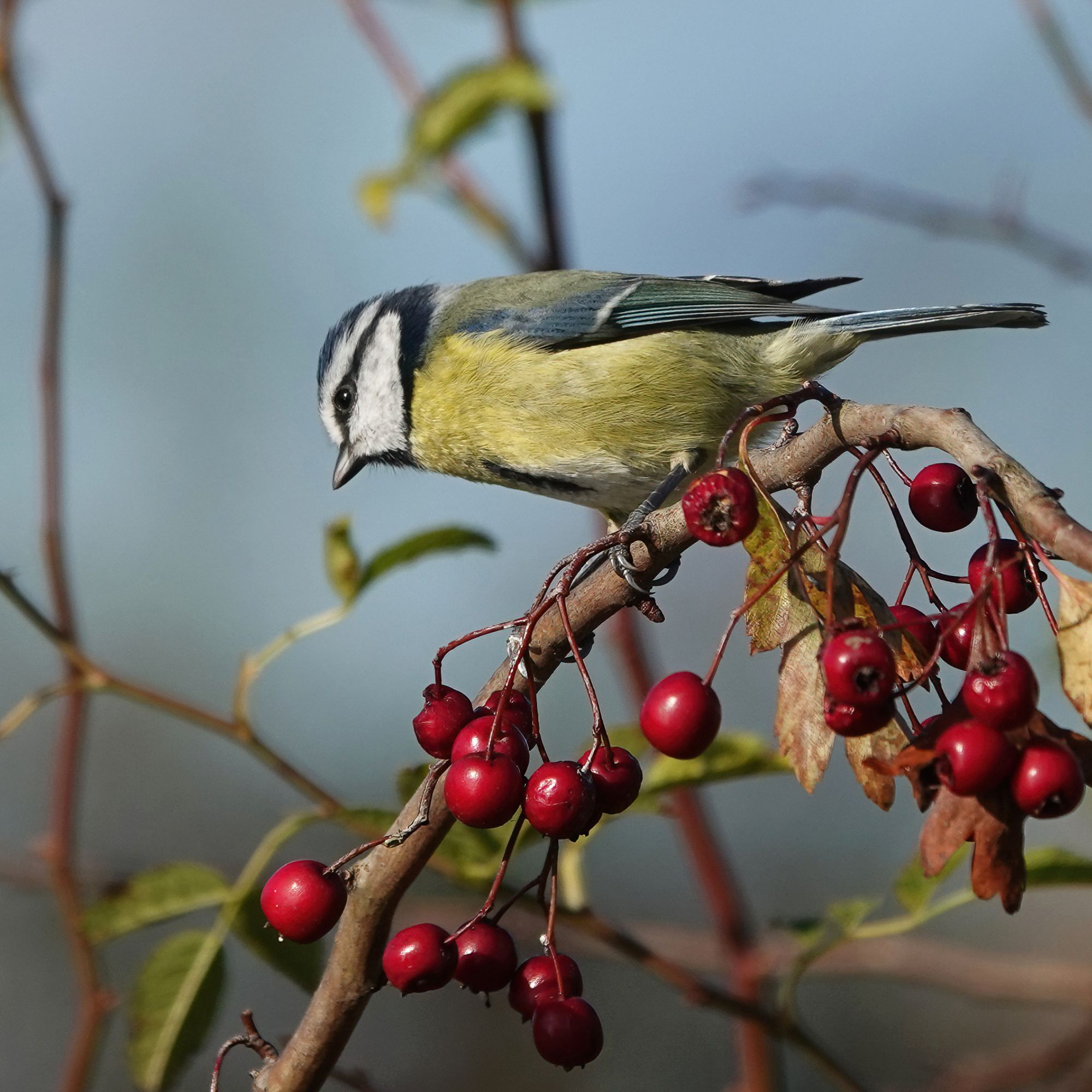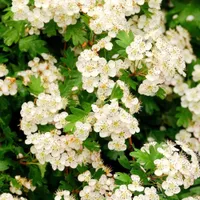How to grow a hawthorn hedge like a gardening pro this autumn
One of the prettiest hedges around, learn how to grow hawthorns in your garden with our expert guide


Sign up to our newsletter for style inspiration, real homes, project and garden advice and shopping know-how
You are now subscribed
Your newsletter sign-up was successful
If you're keen to learn how to grow hawthorn, you've come to the right place! We've pooled all of our knowledge (and consulted our favourite gardening pros) on when to plant hawthorn in your garden, as well as everything you need to know about feeding and maintenance.
Considering hawthorn is one of the most popular hedging plants in the UK, it's well worth learning everything there is to know about this beyond beautiful plant.
Trust us: this is one garden trend you won't ever regret jumping on...
How to grow hawthorn
'As low-maintenance plants, hawthorn hedges are ideal for gardeners of any skill level,' promises Morris Hankinson, founder of of Hopes Grove Nurseries.

Morris Hankinson is the founder and managing director of Hopes Grove Nurseries Ltd, the UK’s only specialist grower-retailer of hedging plants, which he established after graduating with a Commercial Horticulture Degree from Writtle College, Essex in 1992.
'Whether you are new to the world of hawthorn hedge maintenance, or you’re an avid gardener, anyone can reap the rewards of planting hawthorn hedges,' he adds.
When it comes to learning how to grow hawthorn, however, there are two options: you can either fork out for instant hawthorn hedging plants, which are usually delivered to your doorstep in 1 metre, pre-clipped sections, or potted hawthorn hedging plants.
Alternatively, you can opt for bare root hawthorn hedging – which is far cheaper and far better for the environment, too.
Sign up to our newsletter for style inspiration, real homes, project and garden advice and shopping know-how
Hawthorn hedging | from £44.99 for 25 × bare root plants at Crocus
These bare root hawthorn hedging plants promise fragrant white flowers in May, followed by dark red fruit, and glossy green leaves.
While instant hawthorn hedging can be planted all-year round, you'll need to be more careful with your bare root plants.
'They need to be planted in their dormant period,' says Morris, 'which means the best time to plant a hawthorn hedge is between November and March.'
Here's everything you need to know.
What you need:
If you're hoping to learn how to grow hawthorn like a gardening pro, you'll need to make sure you have the right tools and equipment to hand.
- Bare root hawthorn hedging plants from Crocus
- Well-rotted garden compost or horse manure
- Mulch made from bark, composted bark, or Monty Don's autumn leaf mould
- A general purpose fertiliser, such as Growmore from Amazon
How-to guide:

Now that you have all your equipment to hand, it's time to learn how to grow hawthorn in earnest. Let's get planting...
1. Time it right
As mentioned already, a big part of learning how to grow hawthorn is, in fact, learning when to plant hawthorn. Because, while instant hedging plants or potted hawthorn can be planted all-year round, bare root varieties must be planted between November and March.
'Hawthorn is a very hardy plant and can tolerate most conditions,' says Christopher O'Donoghue, one of the co-directors of Gardens Revived.

A gardener with over a decade of experience under his belt, Christopher set up Gardens Revived with his brother, Andrew, in 2018 to create a thriving family business. Together, they have worked on residential gardens, listed buildings and gardens, flower shows and large estates with some exceeding 70 acres – many with historical significance.
'However,' he adds, 'you should avoid planting them when the ground is very waterlogged or frozen, as this can cause a world of problems for your new hedging plant.'
2. Work out your spacing
If you're hoping to grow hawthorn as a low-maintenance hedge, you'll want to dig a row, spacing plants 45-60cm apart. Plant a double row if you'd prefer a wider hedge.
Alternatively, you can grow hawthorn as a specimen tree (check the label for spacing requirements) – just be sure to stake it for a little extra support.
'Aim to keep your staked for 18 months to three years, in order to give your hawthorn's roots time to establish properly,' says Christopher.
Whatever you do, be it hedge or specimen tree, make sure you mix some well-rotted garden compost or horse manure into the planting hole.
3. Cover it up
'The biggest tip I can offer you when planting a hawthorn hedge is to ensure the roots are not exposed, because insects or pests could eat them or it could cause the plant to die,' says Morris.
The Royal Horticultural Society (RHS) also advises that you try mulching to reduce moisture loss from soil around the roots.
'Leave a of gap of about 10cm around the woody base of stems/trunk that is free from mulch, to prevent the bark rotting,' they say.
4. Show it some TLC

'Once you’ve planted your hawthorn hedging, you need to take good care of it to ensure it establishes and thrives in your garden,' says Morris, although he notes that bare root hawthorn hedging is low maintenance, making it 'ideal for gardeners with busy schedules!'
If you want to learn how to grow hawthorn like a pro, though, his top tips for yours are as follows:
- In its first spring and summer, make sure you water your hawthorn hedging once a week (you may still need to water your hawthorn hedging during intense dry Summer periods).
- To stop your hawthorn hedge from growing out of control, trim the edges in autumn.
- Apply a general fertiliser in the springtime to help your hawthorn during the growing season (e sure to stop this once your hedging is established).
FAQs:
What is hawthorn famous for?
Hawthorn is one of the UK's most popular deciduous hedging plants, thanks to its fragrant white blossoms and rich red berries.
This means that it's not just a beautiful addition to your front garden ideas: it also deserves a place on your list of wildlife garden ideas, too, as it provides food and shelter for birds and mammals throughout the year.
How do you plant hawthorn hedging?
You should plant bare-root hawthorns between November and February, when they are in their dormant period.
'If the planting site is very dry it should be well soaked before planting allowing time for the excess to drain away,' says Morris. 'PLEASE DO NOT REMOVE THE HESSIAN MESH around the roots when planting, it is there to protect the roots and will rot away completely over time.'
As a general rule of thumb, dig a hole that's two feet square and one foot deep, although Morris adds that 'root ball plants will have a "nursery mark" on the stem, [so] always make sure to plant them back at the same depth'.
Add a layer of organic matter – such as compost or well-rotted manure – to the base of the hole and dig in. Finally, be sure to water your hedging plant thoroughly.
What time of year do you plant hawthorn hedges?
Potted hawthorn and instant hedging can be planted all-year round. However, you should plant bare-root hawthorns between November and February, when they are in their dormant period.
How do you prune a hawthorn hedge?
When it comes to pruning your hawthorn hedge, Morris says that you should:
1. Prune your hawthorn hedge during summer and autumn, once it’s had a chance to flower
2. Cut dead, broken and diseased branches
3. Ensure there’s no wildlife, including nests, living in your hawthorn hedge before pruning
When it comes to pruning your hawthorn hedge, Morris says that you should not:
1. Prune your hawthorn hedge before it’s been established (usually after 2 years)
2. Worry too much about being precise, as hawthorn hedges aren’t known for being neat
3. Hard prune your hawthorn hedge every single year. Instead, you should be hard pruning your hawthorn hedge in the second spring after planting
'If you’ve ever planted a hawthorn hedge in your garden before, you’ll know that they produce beautiful red berries once they’ve been established,' adds Morris.
'Yes, they add brightness to your garden but they also provide food for wildlife so it’s important to ensure you get the balance right between making sure the wildlife has enough food and not letting your garden be overrun with mouldy berries!'
Now that you know exactly how to grow a hawthorn, it's time to get planting. Personally, this writer is off to fill her garden borders with this gorgeous hedging plant before the month is out...

Kayleigh Dray became Ideal Home’s Acting Content Editor in the spring of 2023, and is very excited to get to work. She joins the team after a decade-long career working as a journalist and editor across a number of leading lifestyle brands, both in-house and as a freelancer.
